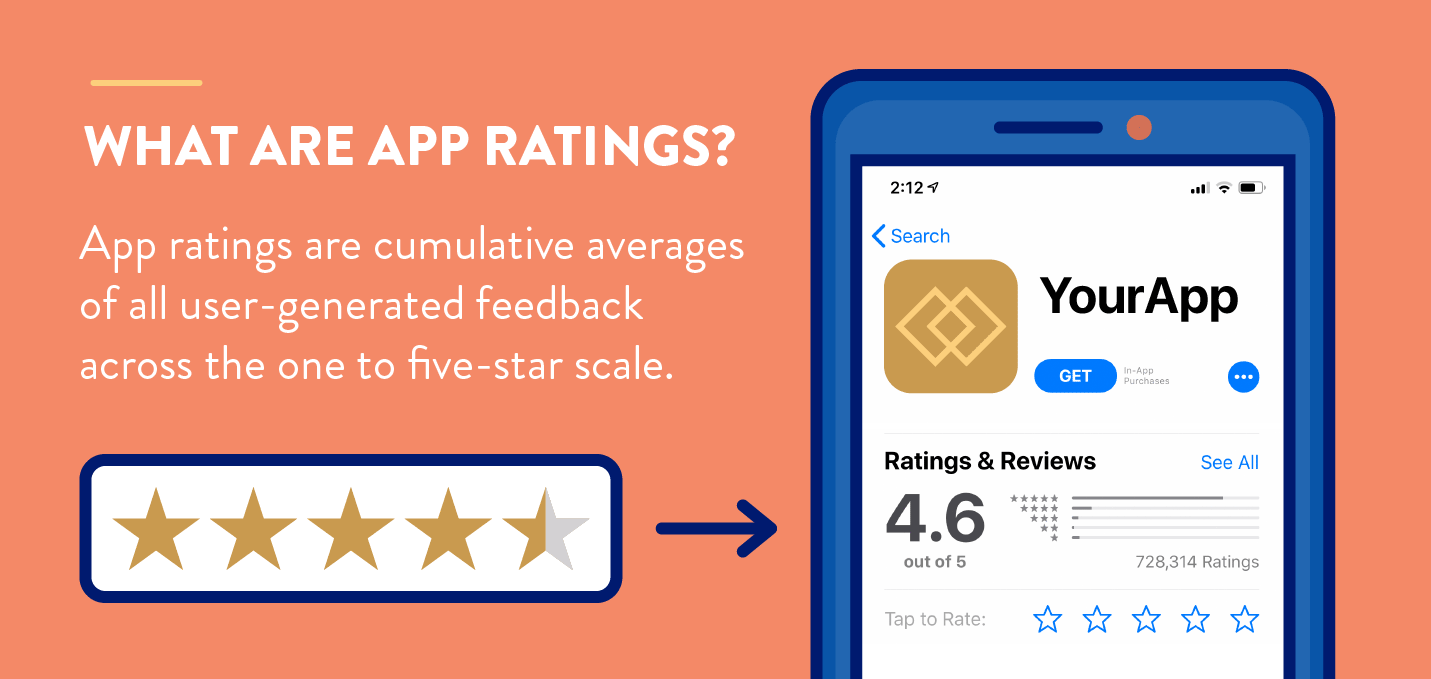How To Respond To (Good and Bad) App Store Reviews
We all know that app store ratings and app reviews can play a major role in an app’s success. Research indicates consumers generally trust online reviews.
Thus, whether or not a potential user chooses to download an app could depend on what previous users say about it through the App Store rating system.
Since companies have the opportunity to address reviews, they can avoid losing sales due to a review that misrepresented an issue with a given product.
Great reviews can help to boost the app’s likelihood of getting more downloads – for example, companies could find reasons to respond with praise and even provide inside updates on what’s to come with future versions.
With the ability to respond to App Store reviews, companies should carefully think about how to engage with end-users when responding to app store reviews, both good and bad.
Let’s have a look at some best practices.
How does the App Store rating system work?
Here’s the basic way the App Store rating system works now: a user downloads an app and then writes a review.

The company that published that app can then respond directly to any review, and the company’s response will then be available for all customers to view.
As an end result, companies get to effectively provide an update to an entire group and not just a single user. It’s practically a win-win for all.
Additionally, the company may spot negative App Store ratings or App Store reviews that don’t seem fair for a legitimate reason. If that’s the case, they could potentially respond in a way that will help those browsing the App Store understand that a particularly negative review might not actually be trustworthy or accurate.
How to effectively respond to feedback
As we all know, not all feedback will be great. And, it’s hard to keep composure when a presumably unjustified review is given.
However, customer service is key here. Overall professionalism and transparency must be kept when responding to users’ comments and App Store reviews.
Here are a few tips for App Store success that you should consider:
1 / Communicate effectively
For negative App Store reviews, avoid getting defensive.
Instead, use the feedback to see where you can improve your app in current or future feature updates.
Also, remember that you are responding on behalf of your company.
So, respond in your brand voice using language that your customer understands. Avoid unfamiliar industry jargon.
2 / Don’t let negative app store reviews linger
You obviously don’t want too much time to lag between your customer’s initial question and your response.
Ideally, respond within 24 hours.
Apple lets you set up email alerts in the App Store to be notified when someone leaves a comment or review.
3 / Answer the question at hand
One of the biggest mistakes a developer or company can make is using their responses to promote or advertise a new product or feature.
Stick to the topic at hand and use your responses to clearly and succinctly answer your customer’s question.
4 / Let your reviewer know you’re taking action
This one is fairly simple: give your user a brief action plan of what’s to come next.
It doesn’t have to be a full detailed outline of your next course of action with the app.
Rather, let them simply know that you’re taking action on fixing that bug.
Or, give them an expected timeline on a new release date. This will help alleviate any frustration.
And also remember since all users are able to view your response; this will also help answer any and all similar questions.
Do respond and improve App Store rankings
It goes without saying that you should absolutely be responding to App Store reviews, good and bad.
A response to a negative review gives you the opportunity to shed light on the next steps and stages of your app.
You will let others know that an update is available and that fixes have been made. You’re also letting your users know this is an app that will continue to improve with their feedback.
All of these benefits can lead to overall better App Store ratings!












